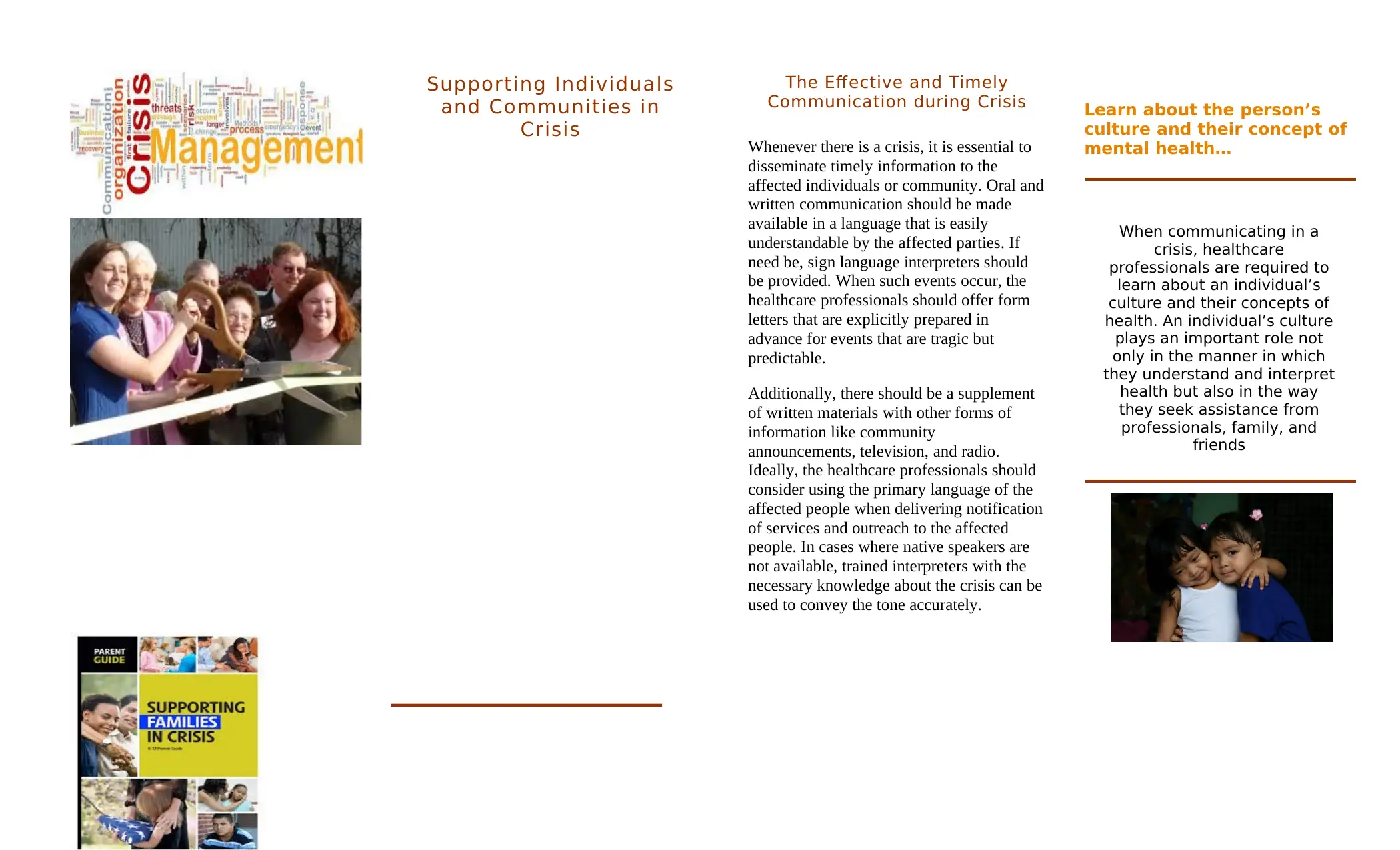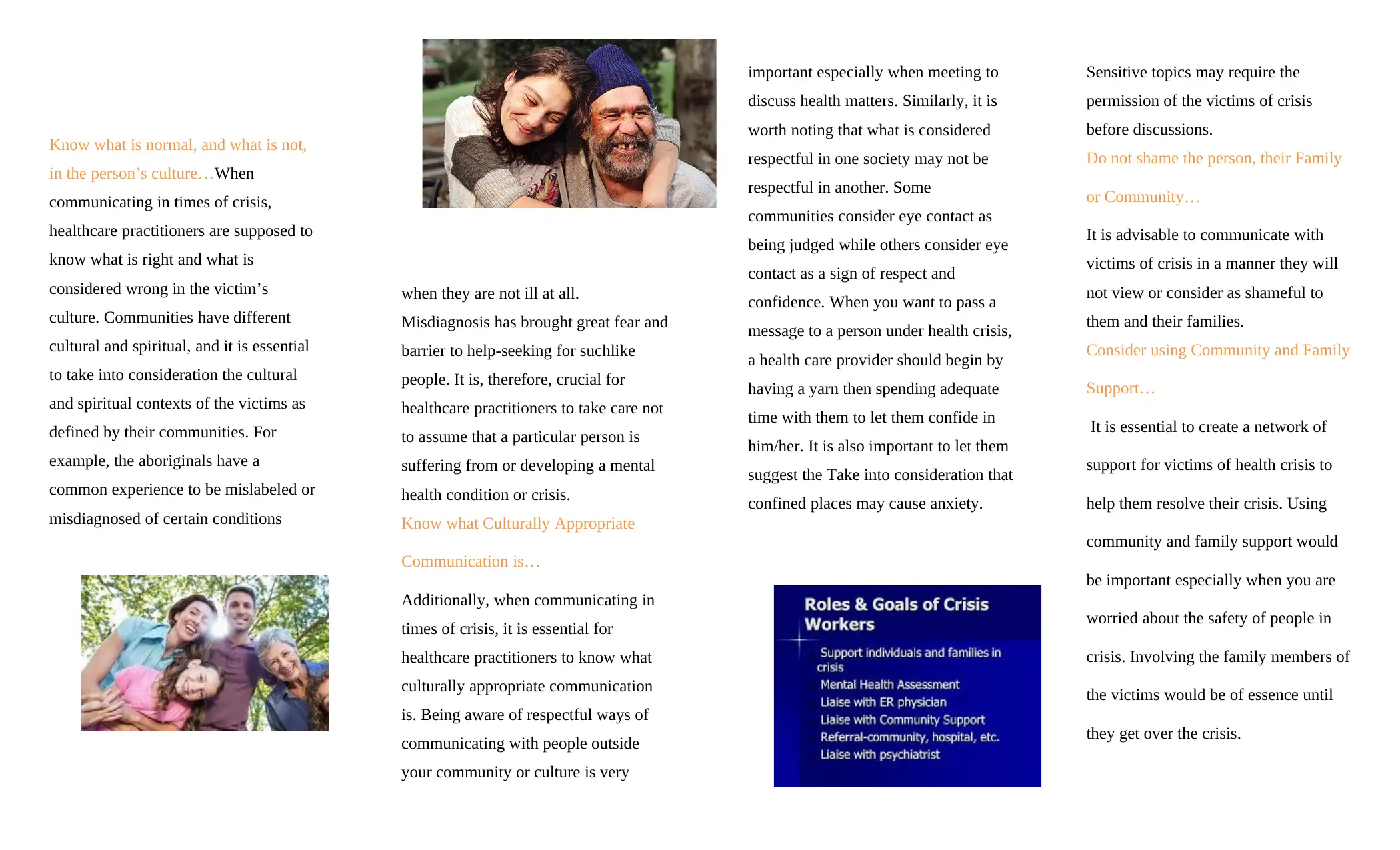Strategies for Crisis Communication in Healthcare: A Detailed Report
VerifiedAdded on 2023/06/04
|2
|650
|72
Report
AI Summary
This report provides a comprehensive overview of crisis communication strategies in healthcare, emphasizing the importance of timely and culturally sensitive communication. It highlights the need for healthcare professionals to provide accessible information, including language interpretation and written materials. The report stresses the importance of understanding cultural contexts, avoiding misdiagnosis, and using culturally appropriate communication methods. It also emphasizes the value of community and family support networks in helping individuals cope with crises. The report offers practical advice on how to communicate effectively with individuals in crisis, including creating a supportive environment and respecting their cultural and personal needs. Finally, it stresses the importance of considering the potential for anxiety in confined spaces and the need for sensitive and respectful interactions with those affected by the crisis.
1 out of 2








![[object Object]](/_next/static/media/star-bottom.7253800d.svg)